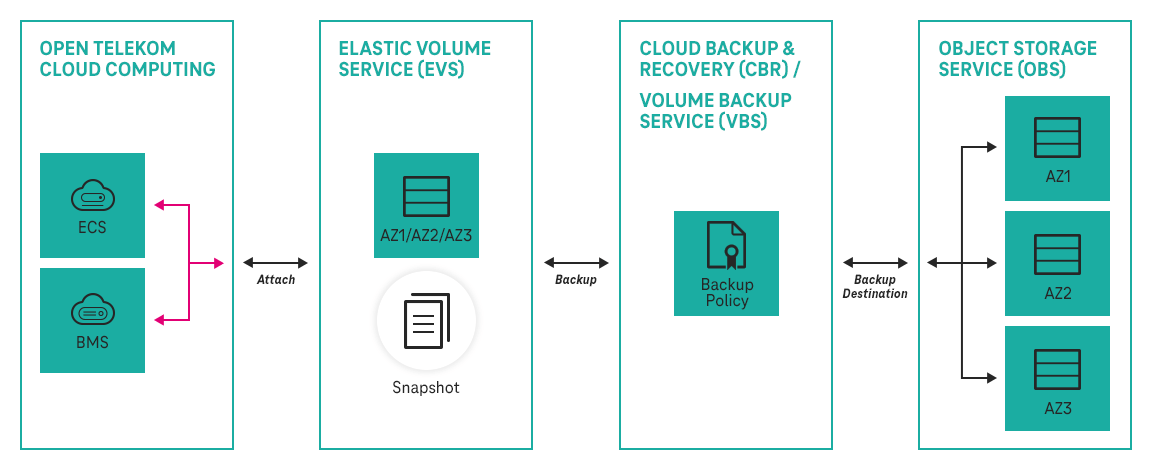Clouds decouple computing and storage resources from the associated physical hardware. This allows you to easily scale your cloud infrastructure and components separately from one another. Storage is one of the main parts of your cloud server and is where your operating system and application data lie, making it an essential component within your cloud infrastructure.
The Open Telekom Cloud Elastic Volume Service (EVS) is the scalable block storage solution for your Elastic Cloud Server (ECS) or Bare Metal Server (BMS). Multiple disk types are available, allowing you to make use of the most cost-efficient disk for your type of application. EVS disks are easily scalable and enable you to attach up to 60 of them to your servers. It is even possible to share EVS disks across up to 16 servers. Disks start at 10 GB and can be scaled up to 32 TB per disk.














